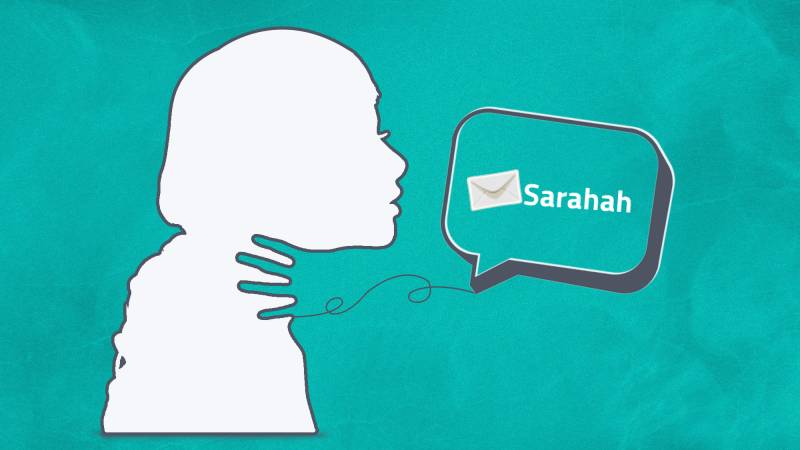If you have been active on social media recently, you would have become familiar with the app Sarahah. It's the new internet fad and apparently, everyone is jumping the bandwagon and trying it for good. Basically, it’s an app where you can sign up, share your account's link publically and people can send you anonymous messages. Cool, isn't it? Well, not so much! I made an account too (when did I say I wasn't one of those jumping the bandwagon), shared it on my Facebook and waited for feedback. Safe to say, I got a lot of it. A number of people took the liberty to call me by names, some of them, if I mention here won’t be approved by censor board. The irony was they were mostly from people on my own friend list. Anyway, this ‘constructive’ feedback got me thinking about Maslow's hierarchy of needs.
Well, where did that come from? Turns out it is completely relevant. Self-esteem and acceptance mark the second highest place in Maslow's hierarchy of needs and that's where such apps like Sarahah hit hard. Overcome this step and you can become a self-actualised individual who is not only aware of his talents but actively work towards achieving his full potential. However, the hardest part of climbing a cliff is when its peak becomes visible. It looks reachable yet takes every last bit of your will. Maslow’s last step is a little too similar. It demands personal strength and supportive environment. Though, in a society like ours where individuality is not watered and empathy is far-fetched, it's near impossible to overcome this need. The surroundings are toxic and masses are so hostile that creativity can easily strike sour note unless it feeds preconceived notions of society. It’s not only true for real world but also the virtual one. Yes, denying that the internet plays no part in our daily lives would be living in fool’s heaven. It has become our new reality and is equally dark.
Narrating my own experience, I have always been passionate about two things: debating and writing. The former taught me to articulate my thought process and the later aided me in becoming assertive. They have helped me carve a personality that was enough to be comfortable in yet flexible enough to accept that there's always a room for improvement. The internet has been a major part of discovering as well as perusing both these passions. However, the same internet has been a source of negativity. I have been attacked, bullied or labeled liberal extremist for merely seeing a different perspective or may be sticking to 'ad hominem' is how people often choose to prove their point.
I have always believed that my opinions, no matter how unpopular or rigid, have had helped me claim my individuality in this society where thinking or doing anything out of the line carries a risk of being labeled as a madman, self-obsessed or too bold (some of the names Sarahah blessed me with). It's even worse if you're a woman because well, good women are not supposed to be loud. And God forbid if you claim to be a feminist, you have inflicted a bull attack on yourself and any vitriol coming your way is probably well deserved. Now, although I do, or at least pretend to hold on my cool, the negativity leaves an impact. Although If I were to choose to be someone in another life I wouldn't go for being anyone else but me, I linger somewhere between Maslow's last two steps. I can only imagine what horrors it can inflict on fragile minds and tepid souls struggling with acceptance or worse, mental health issues.

To make the situation worse, apps like Sarahah appear as a tool for bullying. It provides a safe haven to mean-spirited people around us to ambush and attack under the banner of anonymity. These apps apparently come off as benign social media trends. The name Sarahah itself is an Arabic word that means ‘honesty’ and the app has made it a point to put word ‘constructive’ before the feedback but how true is it anyway? In my experience apps like these have the potential of doing far more than providing fun time to both senders and the receivers. The vitriol coming from strangers can incite unnecessary anxiety and hurt the struggles people make to gain a little more acceptance every day. Weren't we debating the ‘thirteen reasons why’ just in recent past? It resonates with the same note.
In short, we need to be more empathetic to produce individuals who are comfortable in their personalities and can inspire prestige. That's how we can make a self-actualised society. So, put a stop to perpetuating this negativity and help people climb that last step!






